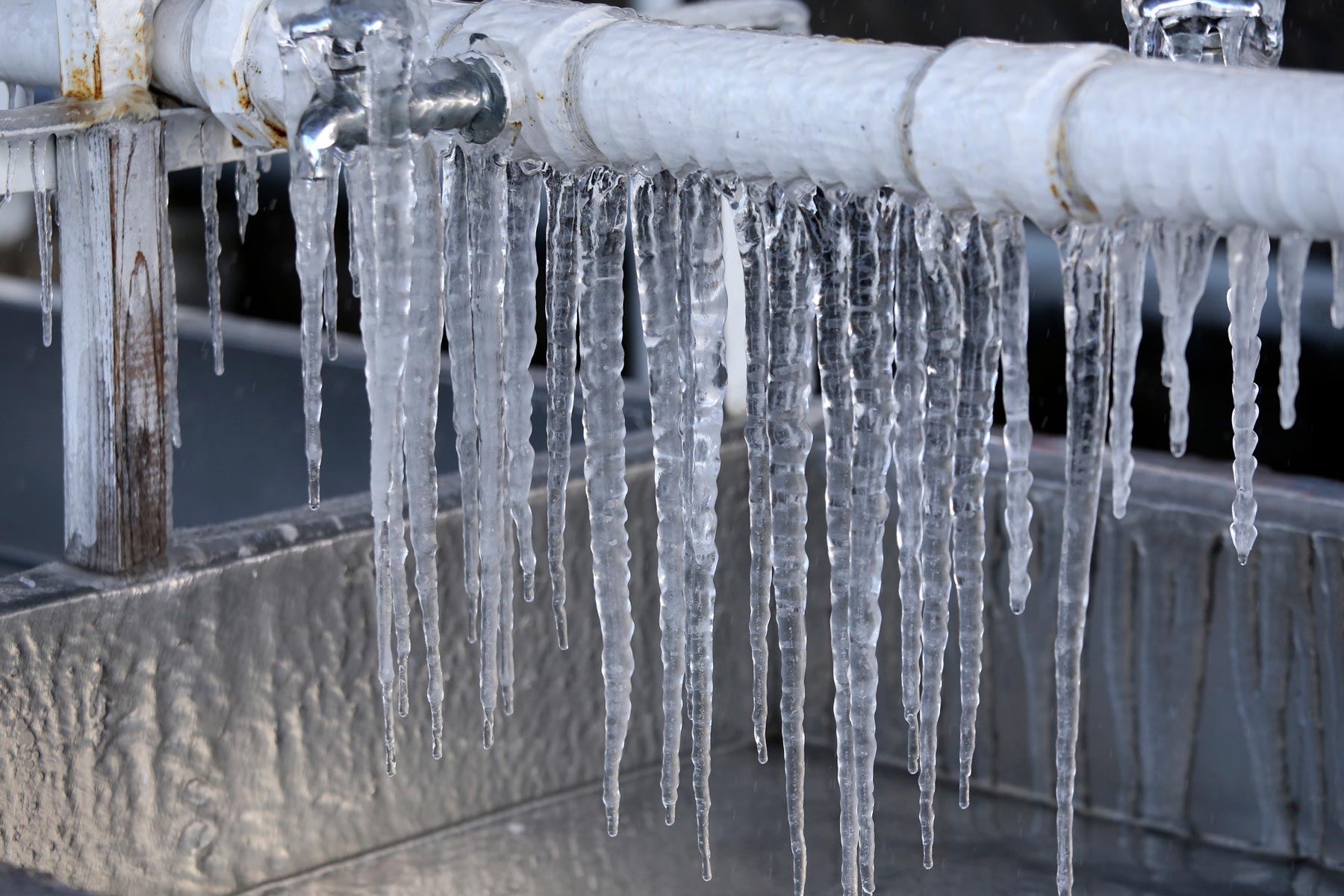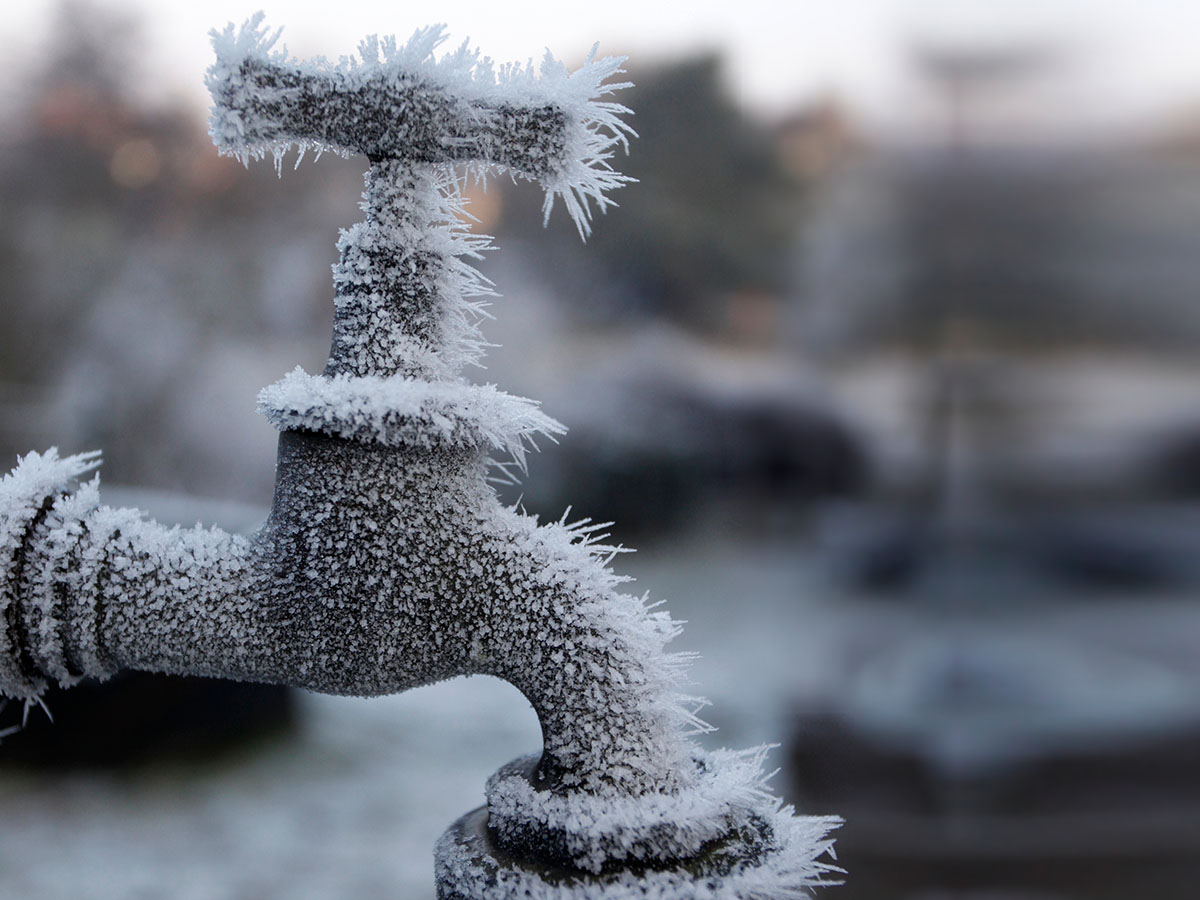Ways to Avoid Frozen Plumbing in Winter: Professional Guidance
Ways to Avoid Frozen Plumbing in Winter: Professional Guidance
Blog Article
Just how do you actually feel on the subject of How to prepare your home plumbing for winter weather?

Winter can ruin your plumbing, particularly by freezing pipelines. Here's just how to prevent it from taking place and what to do if it does.
Intro
As temperatures decline, the danger of frozen pipelines increases, possibly leading to costly repair services and water damages. Understanding exactly how to prevent icy pipes is vital for property owners in chilly climates.
Avoidance Tips
Protecting vulnerable pipes
Cover pipelines in insulation sleeves or make use of warmth tape to secure them from freezing temperature levels. Concentrate on pipelines in unheated or external locations of the home.
Home heating strategies
Maintain interior spaces appropriately heated, specifically locations with pipes. Open up closet doors to permit warm air to circulate around pipes under sinks.
How to determine icy pipelines
Try to find reduced water flow from taps, uncommon odors or sounds from pipes, and visible frost on subjected pipes.
Long-Term Solutions
Architectural changes
Take into consideration rerouting pipes far from outside wall surfaces or unheated locations. Include additional insulation to attic rooms, basements, and crawl spaces.
Updating insulation
Invest in high-quality insulation for pipes, attic rooms, and wall surfaces. Proper insulation aids maintain constant temperature levels and decreases the risk of frozen pipelines.
Shielding Outdoor Plumbing
Garden hose pipes and outdoor faucets
Detach and drain pipes yard hoses before winter months. Mount frost-proof faucets or cover exterior taps with insulated caps.
Understanding Icy Pipes
What creates pipes to ice up?
Pipes freeze when subjected to temperatures below 32 ° F (0 ° C) for extended durations. As water inside the pipes freezes, it broadens, putting pressure on the pipe wall surfaces and possibly causing them to break.
Threats and problems
Frozen pipes can result in supply of water disruptions, property damages, and pricey repair work. Burst pipes can flood homes and trigger comprehensive architectural damage.
Indications of Frozen Piping
Determining icy pipes early can stop them from bursting.
What to Do If Your Pipes Freeze
Immediate actions to take
If you presume icy pipes, keep taps open to ease stress as the ice thaws. Use a hairdryer or towels taken in hot water to thaw pipes slowly.
Conclusion
Avoiding frozen pipelines needs aggressive measures and fast actions. By comprehending the reasons, signs, and preventive measures, property owners can safeguard their pipes during winter.
Helpful Tips to Prevent Frozen Pipes this Winter
UNDERSTANDING THE BASICS: WHY PIPES FREEZE AND WHY IT’S A PROBLEM
Water freezing inside pipes is common during the winter months, but understanding why pipes freeze, and the potential problems it can cause is crucial in preventing such incidents. This section will delve into the basics of why pipes freeze and the associated problems that may arise.
THE SCIENCE BEHIND FROZEN PIPES
When water reaches freezing temperatures, it undergoes a physical transformation and solidifies into ice. This expansion of water as it freezes is the primary reason pipes can burst. As the water inside the pipe freezes, it expands, creating immense pressure on the walls. If the pressure becomes too great, the pipe can crack or rupture, leading to leaks and water damage.
FACTORS THAT CONTRIBUTE TO PIPE FREEZING
Low Temperatures: Extremely cold weather, especially below freezing, increases the risk of pipes freezing. Uninsulated or Poorly Insulated Pipes: Pipes located in unheated areas, such as basements, crawl spaces, or attics, are more prone to freezing. Insufficient insulation or lack of insulation altogether exacerbates the problem. Exterior Wall Exposure: Pipes running along exterior walls are susceptible to freezing as they encounter colder temperatures outside. Lack of Heating or Temperature Regulation: Inadequate heating or inconsistent temperature control in your home can contribute to frozen pipes. PROBLEMS CAUSED BY FROZEN PIPES
- Pipe Bursting: As mentioned earlier, the expansion of water as it freezes can cause pipes to burst, resulting in significant water damage.
- Water Damage: When pipes burst, it can lead to flooding and water damage to your property, including walls, ceilings, flooring, and personal belongings.
- Structural Damage: Prolonged exposure to water from burst pipes can compromise the structural integrity of your home, leading to costly repairs.
- Mold and Mildew Growth: Excess moisture from water damage can create a favorable environment for mold and mildew growth, posing health risks to occupants.
- Disrupted Water Supply: Frozen pipes can also result in a complete or partial loss of water supply until the issue is resolved.
WHY CERTAIN PIPES ARE MORE PRONE TO FREEZING
- Location: Pipes located in unheated or poorly insulated areas, such as basements, crawl spaces, attics, or exterior walls, are at higher risk of freezing.
- Exterior Pipes: Outdoor pipes, such as those used for irrigation or exposed plumbing, are particularly vulnerable to freezing as they are directly exposed to the elements.
- Supply Lines: Pipes that carry water from the main water supply into your home, including the main water line, are critical to protect as freezing in these lines can affect your entire plumbing system.
- Underground Pipes: Pipes buried underground, such as those connected to sprinkler systems or outdoor faucets, can be susceptible to freezing if not properly insulated.
https://busybusy.com/blog/helpful-tips-to-prevent-frozen-pipes-this-winter/

I stumbled upon that article on Prevent Frozen Pipes while doing a lookup on the web. Do you know about another person who is serious about the niche? Be sure share it. I recognize the value of your readership.
Apply Now Report this page